Now is a great time to travel, but if we want to save the world then perhaps we shouldn’t
The pandemic has provided us with a real world illustration of what the planet could be like without intense tourism and forced us to face the fact that travel pre-Covid-19 was sort of wrecking it.
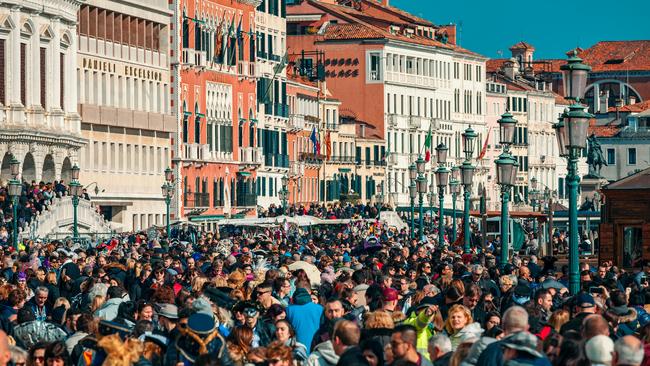
This week my girlfriend and I did our first bit of international travel since the start of the pandemic and it was labour-intensive. Before leaving, there were tests to be booked and taken, passenger locator forms to be filled out and vaccine certificates to be screen-grabbed. In mainland Europe there were long queues at borders (thanks Brexit), passports to be stamped (thanks Brexit) and Covid documentation to be produced at restaurants, hotels and cafes.
On our return, we found ourselves, as a result of regulations hastily introduced by the British government, gathered with hundreds of other travellers in a warm room to be tested for a bug that you could almost see superspreading among us. The whole thing felt counter-productive, as well as complicated, and I totally understand why, in the face of this, lots of people choose not to travel at all. But truth is that we also had . . . a good time.
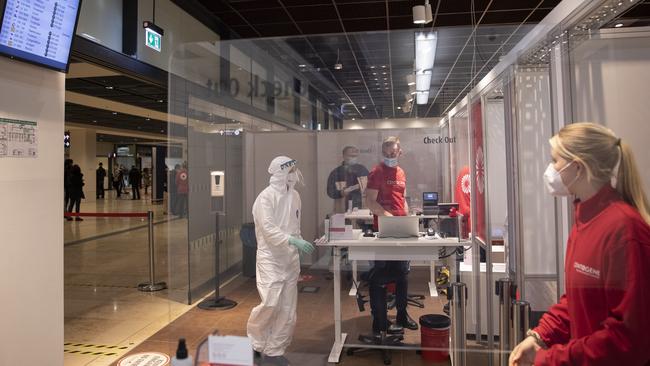
Admin aside, it’s actually a beautiful time to see the world. Aircraft are not full and you can spread out on flights. Your hand luggage is never at threat of being thrown into the hold because of a shortage of cabin space. Hotel staff and taxi drivers are happy to see you. Once you get there, polluted cities don’t feel so polluted and you feel like you have your destination to yourself. And I’ve found myself wondering whether this quieter way of doing things, with less frequent travel, might not be a better model for tourism.
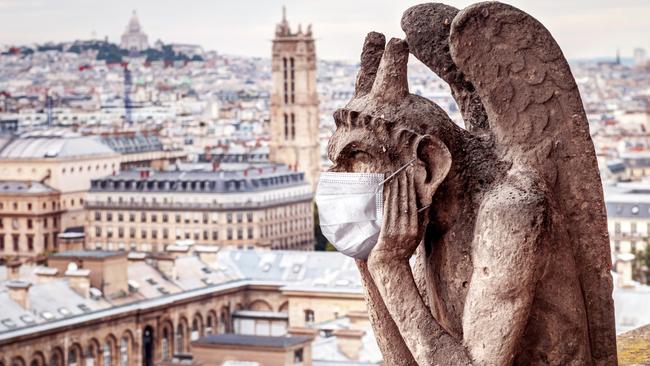
Which, I know, will not be a popular sentiment with the travel industry. This week it has complained vociferously about Britain’s decision to force all travellers entering the country to take a pre-flight Covid-19 test, claiming that it will undermine the peak Christmas season for airlines. The threat of a second disrupted winter has seen shares sink, with the Bloomberg EMEA Airline Index losing nearly a fifth of its value in November. In October Heathrow Airport said that its losses from the Covid-19 pandemic had hit $6.4 billion. Millions of jobs have been lost and millions more are still at risk.
But doesn’t the intense way we used to travel feel . . . mad now? The pointless stag weekends in Prague. The self-indulgent weddings in Sri Lanka. The supposedly romantic weekends in Paris spoiled by intrusive and aggressive Airbnb hosts. Watching a band in Berlin, rather than Newcastle, because you could combine the gig with a weekend away. And wasn’t tourism, before this pandemic, sort of wrecking the planet?
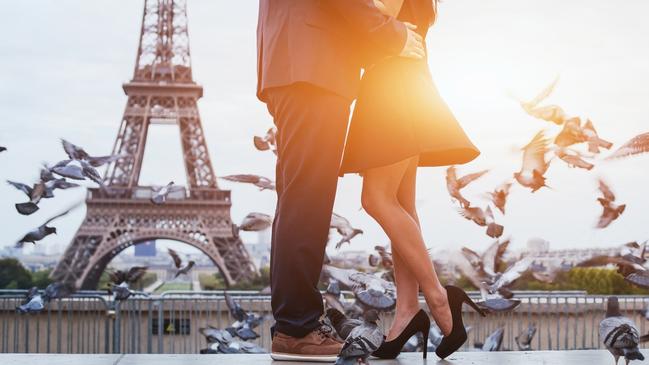
I’m thinking here of “train street” in Hanoi (you’ve seen the photos), which became popular among tourists to Vietnam as a place to get selfies and resulted in trains having to make emergency stops. I’m thinking of the Spanish Steps in Rome, made famous after they featured in Roman Holiday and which attracted so many visitors that the Italian government had to make it illegal to sit on them. I’m thinking of Dubrovnik in Croatia, which experienced a surge in tourism after it featured in Game of Thrones, an increase that led Dubrovnik’s mayor to announce plans to reduce the maximum number of tourists allowed in the city per day. I’m thinking of Venice and the Inca site of Machu Picchu, both severely damaged by tourists, and Iceland, where the population was often outnumbered by tourists by more than three to one.
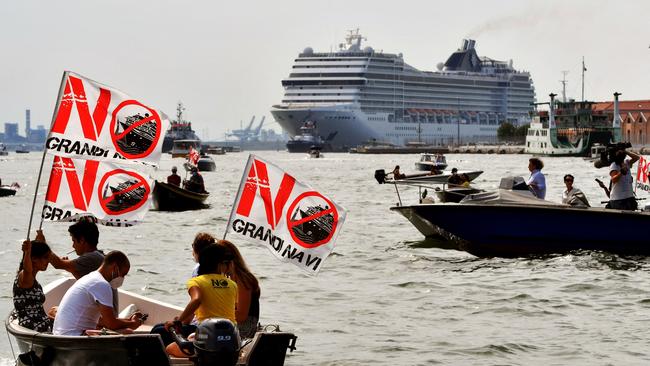
Indeed, “overtourism”, propelled by the popularity of locations chosen by film directors and influencers on social networks, was first inserted in the Oxford English Dictionary in 2018 and was nominated as one of the words of the year. And, given that tourism before the pandemic accounted for about 8 per cent of overall carbon dioxide emissions and that a 2018 study from Nature Climate Change predicted that emissions would increase by 4 per cent a year, shouldn’t we be talking about reducing the volume of it in the name of climate change?
'Overtourism' is defined as 'an excessive number of tourist visits to a popular destination or attraction, resulting in damage to the local environment and historical sites and in poorer quality of life for residents', and has become a heavy burden for many ‘must-see’ locations pic.twitter.com/yiWj7BJ6kB
— Oxford Languages (@OxLanguages) November 16, 2018
It’s not a suggestion you hear stated very often. Indeed, I’ve just spent a quarter of an hour on the website of the World Tourism Organisation, a specialised agency of the United Nations, reading about how, at the recent Cop26 UN Climate Change Conference, it proposed a “co-ordinated plan for tourism to support the global commitment to halve emissions by 2030 and achieve net zero by 2050”. It’s possible I’ve missed something, but within its many proposals I failed to find any explicit mention of reducing the number of trips. There is talk of “strengthening the measurement and disclosure of CO2 emissions in tourism”, “accelerating the decarbonisation of tourism operations”, “engaging the tourism sector in carbon removal”, “defining a clear and consistent sector-wide message and approach to climate action in the coming decade, aligned with the wider scientific framework and urgency to act now”, “outlining the pathways and specific actions that will accelerate tourism’s ability to transform tourism and achieve net zero as soon as possible”, but no clear commitment to reducing how much we travel for fun.
The 24 #UNWTOGA ended with the tourism sector united.
— World Tourism Organization (@UNWTO) December 8, 2021
We look to the future facing the challenges and seizing the chance to become safer, greener and smarter.
The foundations:
💥Youth empowerment
💥Education
💥Innovation
💥Investments
💥Rural development pic.twitter.com/LJeWCVksvN
I guess it’s a painful thing to face up to, given that tourism creates so much economy activity - accounting for 13 per cent of Italy’s GDP, 15 per cent of Spain’s GDP and Britain’s tourism industry being forecast, by Visit Britain, to be worth more than $476 billion by 2025.
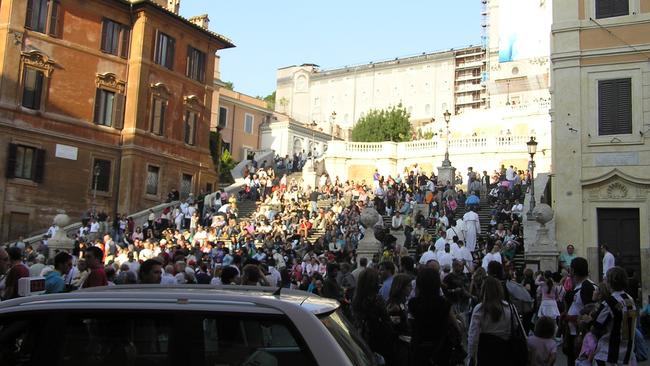
Nevertheless, it’s a question we need to face up to given that, before the pandemic, more than 1.4 billion people were moving around the world every year and the numbers were growing at an exponential rate, with the World Tourism Organisation once predicting that in 2030 the international flow of tourists would exceed two billion.
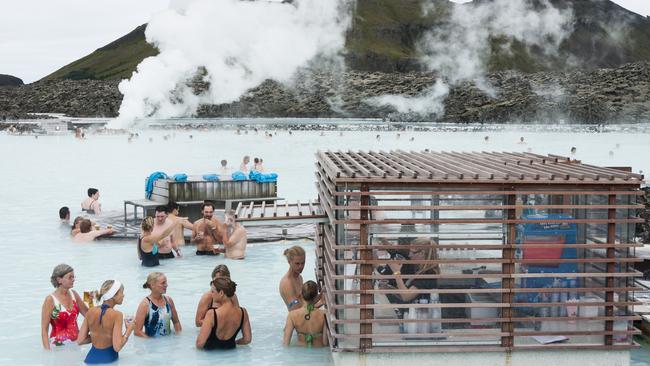
The pandemic has provided us with a real world illustration of what the planet could be like without intense tourism. The air would be cleaner. The queues at Heathrow’s scanners would be shorter. There would be less litter in the countryside and less plastic thrown into the sea. And, if nothing else, there would be fewer people on Instagram who confused foreign travel with having a personality.
The Times

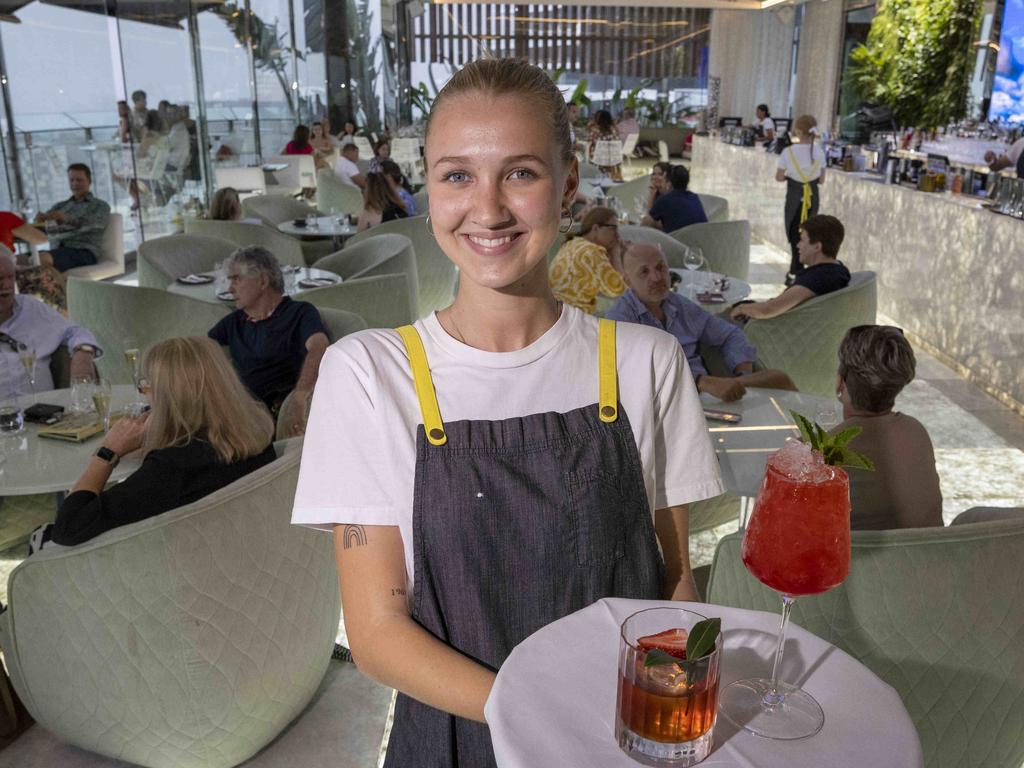





To join the conversation, please log in. Don't have an account? Register
Join the conversation, you are commenting as Logout